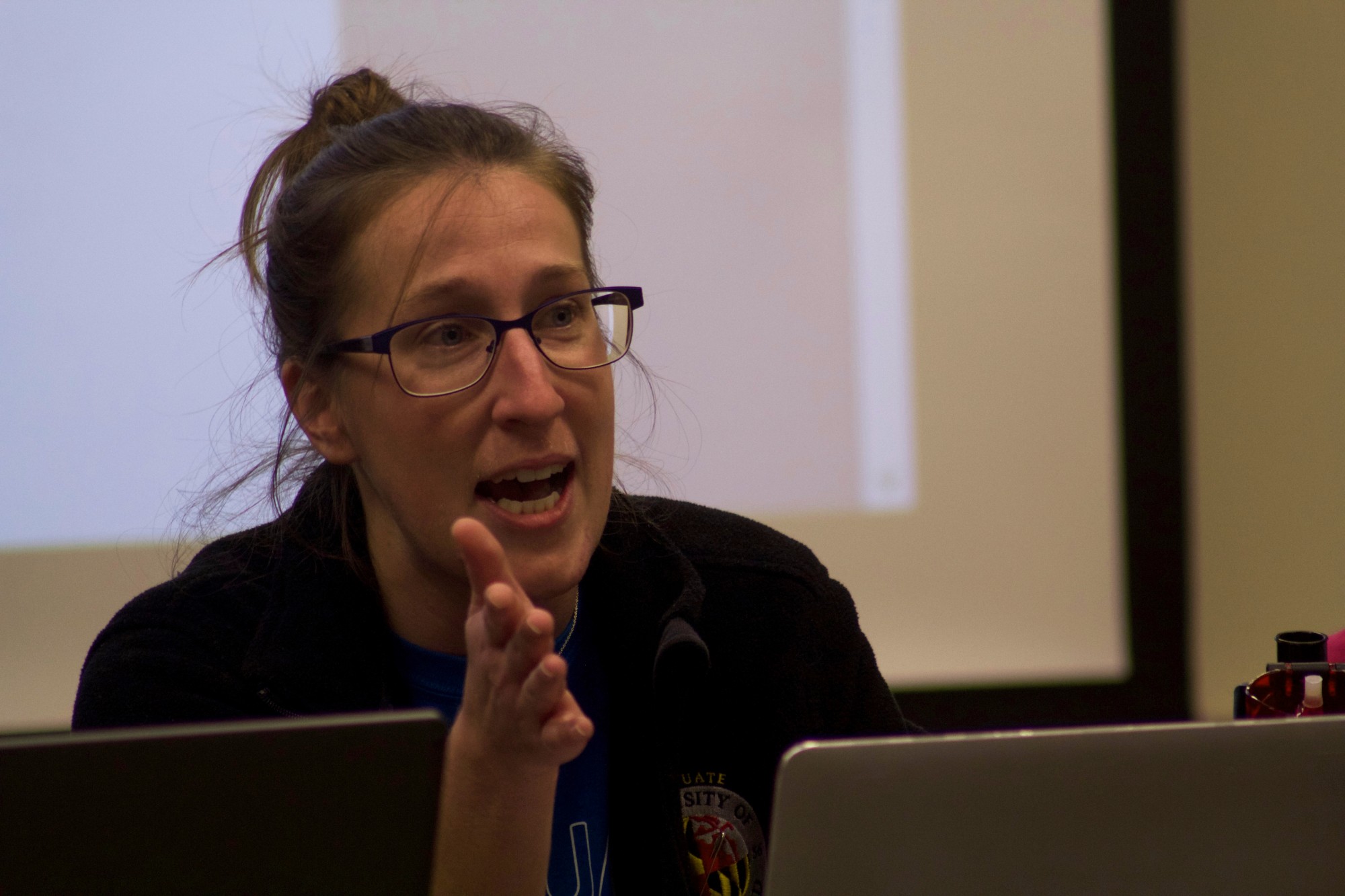The Graduate Student Government established a sexual assault prevention task force Friday to ensure University of Maryland graduate students’ concerns aren’t overlooked while developing strategies to address sexual misconduct.
GSG leaders proposed the task force after several sexual assault prevention initiatives at this university neglected to ask for graduate student input, said Adria Schwarber, the graduate student academic affairs vice president.
Most recently, graduate students weren’t included in the Office of Civil Rights and Sexual Misconduct’s climate survey, which aimed to assess the scope and nature of sexual misconduct at this university, Schwarber said.
This university’s Joint President/Senate Task Force on Sexual Assault Prevention includes only one graduate student out of its 16 members, Schwarber said. This task force was developed to “propose a comprehensive strategy” to address sexual misconduct on the campus, according to an email sent out by university President Wallace Loh on Nov. 8. However, GSG leaders argued this wasn’t possible without the input of graduate students.
“I completely agree as far as the graduate students not being a major factor [in the task force],” said Omalola Taiwo, a behavioral and community health doctoral student who serves on the president’s task force.
But Taiwo was brought onto the panel for her work as the sexual assault prevention and education graduate coordinator for the Department of Fraternity and Sorority Life, not as a representative for graduate students, she said.
However, graduate students experience sexual misconduct issues that can differ from the undergraduate experience, according to the GSG bill. Graduate students’ offenders may have power over their authorship on research, dissertation and thesis work, as well as financial support.
It became “very clear” during a Joint President/Senate Task Force on Sexual Assault Prevention open forum Nov. 17 that this university’s task force didn’t take these kinds of considerations into account, said Fatima Taylor, assistant director of CARE to Stop Violence. Sexual assault prevention groups on the campus needed to do a better job of including graduate students’ concerns, she added.
“I know that us traditionally reaching out and having some involvement with graduate students has been a gap,” Taylor said. “We just want to strengthen the relationship that we have.”
Hannah Allen, a behavioral and community health doctoral student, has been leading her own movement through Futures Without Violence, a national non-profit that tries to prevent domestic violence and sexual assault. They have one fellow on most campuses that picks a goal to try to accomplish. Allen’s goal is to create more graduate student outreach in sexual assault prevention on campus.
Allen, in coordination with CARE to Stop Violence, is holding a graduate student focus group on Dec. 8 to discuss graduate students’ specific concerns about sexual assault.
“I’ve met with several people in the Office of Civil Rights and Sexual Misconduct, essentially just to say, ‘We’re here [and] there are definitely graduate students who want to be involved,'” Allen said. “There’s all these people who care about this issue. They’re all just not in one place, so I think through doing this and forging different connections, I think that that will help.”



